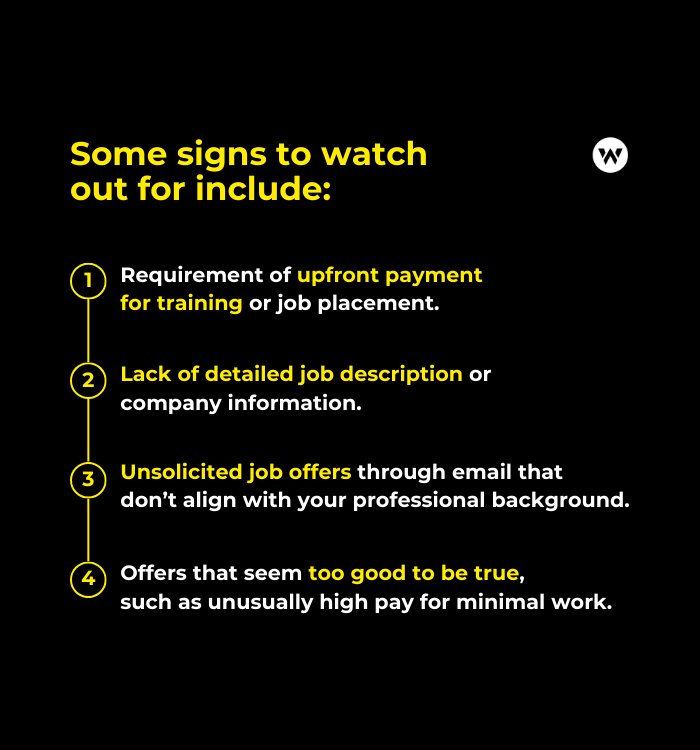- Remote work’s popularity is rising with diverse opportunities across various sectors, enabling professionals to find jobs that match their skills and lifestyles while offering the chance to work from anywhere.
- Legitimate remote jobs can be found by careful search through reputable platforms, leveraging professional networks, and being vigilant to avoid scams by recognizing signs such as requests for upfront payments or vague job details.
- Remote work offers a range of career paths with differing salary scales and opportunities for advancement, challenging the notion that remote positions are inferior to traditional in-office roles.
In an era where rush-hour commutes are becoming relics and kitchen counters transform into cubicles, the traditional workspace is undergoing an extraordinary metamorphosis.
Embracing the sweeping tide of change, employees worldwide are shredding the archaic scripts of nine-to-five rigidity and stepping into the boundless realm of remote work from home jobs.
This isn’t just about clocking in from the couch or taking conference calls in pajamas — it’s a vast, vibrant spectrum of career possibilities that’s rewriting the narrative of what it means to “go to work.” From the heartbeat of tech innovation to the meticulous world of finance, the remote revolution is forging opportunities that resonate with bespoke ambitions and eclectic skill sets.
In pursuit of this newfound liberation from the conventional office, prospective digital nomads and remote workers are navigating a maze of job boards and virtual interviews, armed with a cache of in-demand skills like software savviness, digital communication finesse, and bulletproof self-discipline. With each sector offering a unique landscape, from freelance projects to salaried positions that promise the stability of a corporate entity, the rules of employment are being reimagined.
Yet, amidst the glow of remote work’s allure lie the shadows of misconception and the perils of uncharted territory. Can one genuinely replicate the focus and camaraderie of a bustling office in the sanctuary of their home? Are these positions truly up to par with their in-office counterparts in terms of compensation and career progression?
This in-depth examination peels back the layers of remote work, looking beyond the myths to reveal the actionable strategies that empower sustained productivity and growth without stepping foot outside the door.
Remote Work Has More Interest Than Ever Before
The evolution of technology (and the effects of the pandemic) has redefined the landscape of employment, leading to a burgeoning interest in work from home jobs.

“58 percent. That’s the number of Americans who reported having the opportunity to work from home at least one day a week,” according to McKinsey & Company.
As more people seek to capitalize on the flexibility of remote work from home jobs, understanding the diverse options available becomes essential. Delving into the world of remote work is not merely about landing any job — it’s about discovering a role that aligns with your skills, aspirations, and lifestyle.
There’s a Kaleidoscope of Remote Work from Home Jobs
Work from home positions span across numerous sectors, offering an array of opportunities for professionals from all walks of life. Whether you are a tech-savvy coder, a creative writer, a meticulous accountant, or a supportive customer service representative, there is a niche for you.
Industries such as information technology, healthcare, education, marketing, and customer service are just a few domains where remote work flourishes. Roles range from freelance gigs to part-time engagements to full-time positions with multinational corporations. The digital nomad lifestyle is no longer a dream but a tangible reality, with positions like data entry specialists, virtual assistants, and telemedicine providers becoming increasingly mainstream.
How to Find Legitimate Work from Home Positions
The quest for finding credible work from home jobs can be daunting. Finding legitimate work-from-home positions involves a multi-pronged approach where workers need to distinguish credible opportunities from potential scams, which are unfortunately prevalent in remote job markets. Critical evaluation of job offers, a systematic search through trusted channels, and knowledge of standard remote working practices form the basis for a fruitful job search.
To begin, one should have clarity on the types of work-from-home roles that align with their skills and experience. Identifiable categories include freelance work, remote positions within established companies, and contract roles. Understanding these can help refine the search to platforms and job postings that offer such arrangements.
Having identified the types of positions of interest, the next step is to use reputable job search platforms and resources. Websites like FlexJobs, Remote.co, UpWork and We Work Remotely are tailored for remote job seekers and often vet their listings to safeguard against scams. LinkedIn also has a robust remote job search capability, allowing for filtering of legitimate positions by industry, job type, and experience level. It’s advisable to utilize the advanced search features on these platforms to improve the relevance of job search results.
Another strategy is to leverage professional networks for personal referrals and information on openings. Industry-specific associations, virtual networking events, and online communities can provide leads on credible work-from-home positions.
In the search for legitimate remote work, it’s essential to recognize red flags that indicate potential scams or dubious offers. Some signs to watch out for include:

- Requirement of upfront payment for training or job placement.
- Lack of detailed job description or company information.
- Unsolicited job offers through email that don’t align with your professional background.
- Offers that seem too good to be true, such as unusually high pay for minimal work.
Throughout this process, it’s important to be diligent in researching companies offering remote positions. Check for online reviews, testimonials from current or former employees, and any news articles that provide a clearer picture of the company’s operations and reputation.
Finally, for deeper insights and additional verification, workers should consult resources such as the Better Business Bureau (BBB), which provides information on the trustworthiness of businesses, or Glassdoor, where employee reviews can shed light on company culture and practices (including their approach to remote work).
By systematically sifting through resources, conducting thorough research, and maintaining a skeptical eye towards too-good-to-be-true offers, job seekers can navigate the remote job landscape to find legitimate and fulfilling work-from-home opportunities.
These are the Skills That Set You Apart in Remote Work
While remote work from home jobs may be diverse, certain skills often stand as prerequisites to success in this domain. Self-discipline, superb communication abilities, and time management are cornerstones — regardless of industry. Beyond these, technical prowess, proficiency in digital collaboration tools, and adaptability to shifting priorities play significant roles. Additionally, employers frequently seek candidates who are not only experts in their field but also exhibit an aptitude for continuous learning and self-improvement.
Remote Work vs. Office-based Roles: A Comparative View
Distinguishing between remote work from home and traditional office-based roles helps clarify what remote employees can anticipate. Remote jobs eschew the daily commute, offer flexible scheduling, and grant workers the luxury of personalizing their workspace. Conversely, traditional jobs often present more structured environments, with clear physical boundaries between work and personal life. This fundamental difference in setting can greatly impact one’s approach to work and necessitates a shift in mindset for those accustomed to conventional office roles.
Embracing the Advantages and Tackling the Challenges of Remote Work
The benefits of work from home jobs are substantial, including reduced commute times, a better work-life balance, and the ability to design a flexible schedule that accommodates individual needs. However, challenges such as isolation, overwork, and potential distractions lie in wait. By proactively setting boundaries, creating a dedicated workspace, and embracing time management practices, remote professionals can transcend these hurdles.
How to Sustain Productivity in the Comfort of Your Home
Productivity in a work from home setup hinges on self-regulation and the judicious structuring of one’s day. Establishing a routine, utilizing productivity tools, and taking regular breaks can bolster efficiency and well-being. Cultivating a work-life balance is an art that thrives on clear-cut boundaries and disciplined time allocation.
Dispelling the Myths Surrounding Work from Home Jobs
Misconceptions about work from home positions, such as doubts about their legitimacy, the notion they offer lower pay, or that they are merely stopgap choices, persist. It’s imperative to acknowledge that many remote roles feature competitive salaries, offer comprehensive benefits, and provide paths for career advancement. Just as in traditional settings, success in remote work is contingent upon performance, skill sets, and professional growth.
Opportunities for Growth and Compensation in Remote Roles
The pay scales and career progression in remote work from home jobs exhibit as much variance as in any other employment sector. Factors influencing this include the industry, an individual’s experience level, and the specific demands of the role at hand. It is critical to recognize that remote work is not a monolithic category and that it presents a full spectrum of career trajectories.
It’s clear that remote work from home jobs are embedded in the fabric of modern employment. By equipping themselves with knowledge, tools, and a strategic approach, professionals looking to delve into this realm can do so with confidence.
By venturing into the remote work landscape, not only can one achieve personal and professional fulfillment, but also contribute to the ever-changing panorama of the global workforce.

















